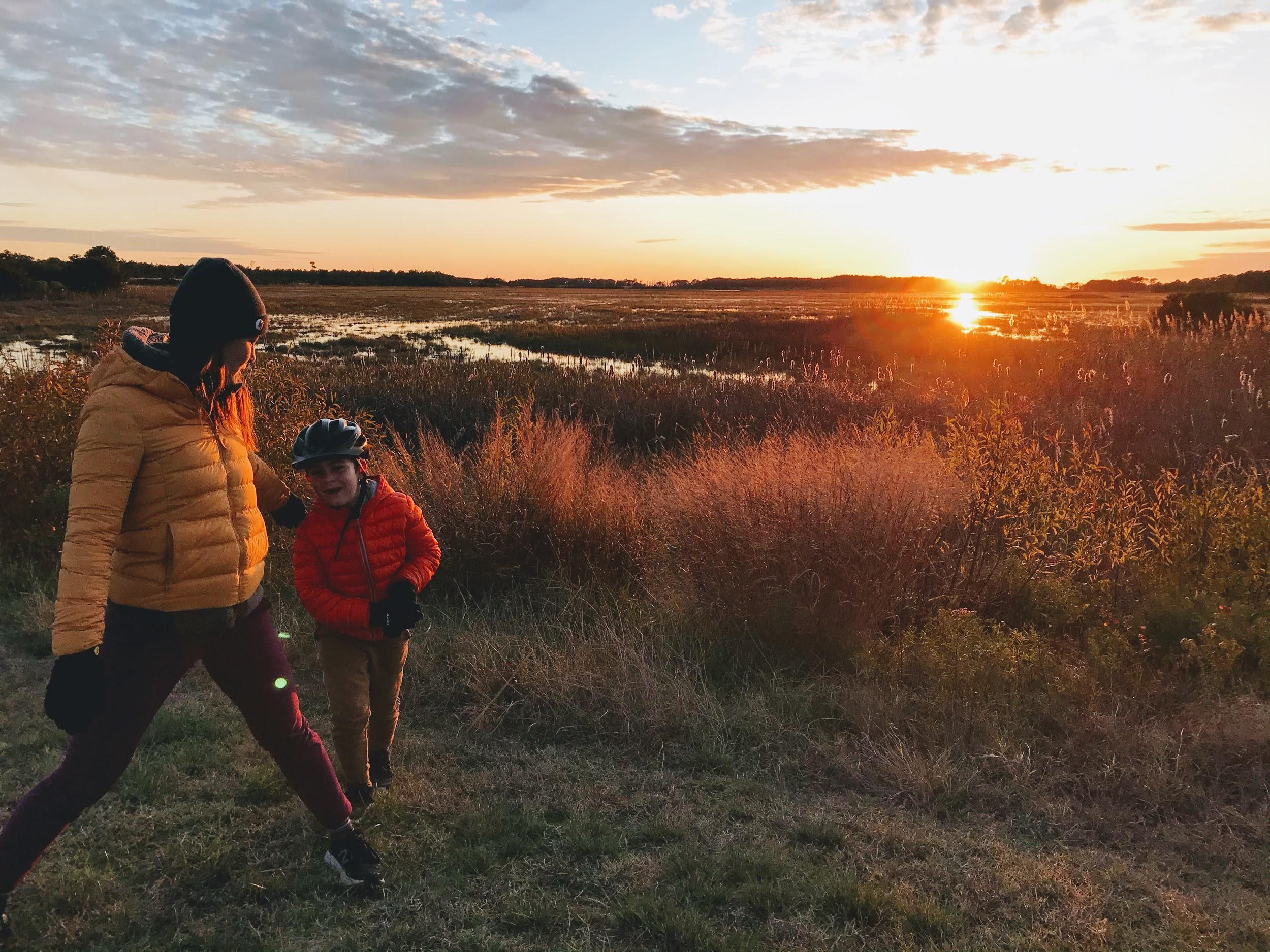By Emily Suzuki
The last thing I wanted to think about when I became a mother was making plans for my child after I died. But three weeks into COVID-19 quarantine, with nowhere to hide from my fear and the fact of my mortality, I finally sat down and wrote my living will.
Talking about death when things are good is taboo in our culture. I carried a superstition that if I so much as thought about death, it might be an invitation for it to show up. Buddhist teacher Thich Nhat Hanh tells us to be grateful for "the non-toothache." He points to the time when all is going well as a moment when we can acknowledge that everything could change. Death and suffering are inherently present in every moment, but they're a part of human experience we often deny.
The first time I sensed death intimately was during labor. Giving birth to my son, I felt the threshold between life and death as delicate and porous. I was four hours into pushing, beyond exhausted and losing trust in myself and those around me. The sun had set, and the darkness of night made me feel an end was near, but an end to what I wasn't sure. I felt broken open, like I was being consumed by a raging fire. I lost sight of knowing that the sun would rise, that my baby would arrive. Suddenly my own passing was no longer unimaginable.
It's been seven years since I gave birth, and writing my living will has been on my to-do list since then. So far, I've managed to avoid the task, hiding behind my denial and checking easier things off the list, such as graduate school and moving to a new state. Then COVID-19 showed up, bringing with it the unavoidable threat of death.
Writer bell hooks says that death's presence "can serve as a faithful reminder that the only time to do what we feel called to do is always now, and not in some distant and unimaginable future." Before the shutdown, my son's father and I had been preparing to meet with a mediator for our divorce process. Negotiating assets, finances and support were all topics of conversation, but neither of us broached the question of what would happen to our child if we died.
Quarantined with my son, I reread hooks' work and realized that continuing to deny death was a greater risk than articulating my end-of-life wishes on paper.
The process took all weekend and was emotionally exhausting. It was the end of March and a string of cold, rainy days darkened my mood. Watching the death toll rising in my state and nearby New York City, I cleared the table that had become my son's homeschool desk and made space for my journal and coffee.
For several hours, I read through various definitions and explanations online, trying to understand my state's legal requirements. I spent another few hours on the phone with my parents, asking questions, attempting to grasp the details and scenarios that would warrant an advance directive.
I had dreaded even looking at the questions I needed to answer in my living will. If I'm not able to speak for myself, will I want life support? What amount of time defines a terminal illness? Who do I trust to advocate for me as my health care proxy and make decisions on my behalf? Who will look after my son if something happens to both his father and me?
At one point, I shut down and took a nap, something I rarely do. When I returned to the process, sprawled on my bed with my laptop, candles lit and quiet music playing, I felt the clarity I needed to answer the questions and sign the document.
I leaned into the difficult conversations I'd been avoiding. I spoke with my son's dad, asking who he felt comfortable entrusting our son's care to. Then I called that special person and asked the enormous question: would they love and parent our child if we were gone?
Finally I had a long discussion with my chosen health care proxy, requesting her support and sharing my advance directive and end-of-life wishes. With each conversation, I felt acutely aware of my heart pounding, my voice shaking, a slight nervous sweat. But I hung up each call with a profound sense of relief.
Setting my intentions for my last days was a process similar to planning for my son's birth. Both times, I wanted to honor life's milestones. As with his birth, my wish when I die is to be at home, surrounded by my closest loved ones. There is home-cooked food, candles, flowers, prayers to honor and a space to process. I envision a time of closure for everyone, but most importantly for my son. In writing my living will, I understood this would be my final wish for myself and my child.
Facing the truth of my own death has brought me a greater sense of peace. I am fortunate to have time for these conversations and decisions. Now I can rest in knowing I have an intention for death that is aligned with how I strive to live: centered in love and compassion, with reverence for the unknown and a heart full of gratitude.
Emily Suzuki is a freelance writer, therapist and Life Doula + Coach. She has her Masters from Antioch University, and has worked as a birth doula. Emily holds space and compassionate support for clients moving through all stages of change and transition. Find her at www.emilysuzuki.com


